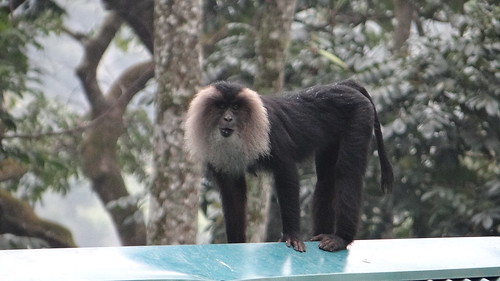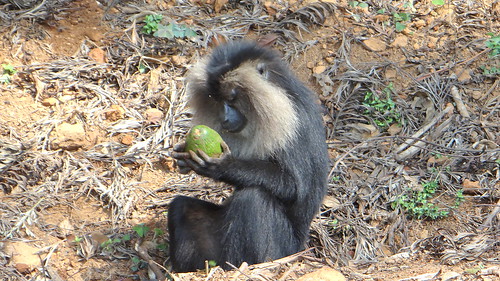Lion-tailed Macaques, Valparai, 18-200414
April 21, 2014
On Good Friday, Anjali, Gopal, Rohan, Tharangini, Yeshoda and I went to
in the aNNAmalai range (Coimbatore district) in Tamil Nadu.
The
was one of the several creatures we hoped to see on our trip to Valparai. The lion-tailed macaque (Macaca silenus), or the wanderoo, is an Old World monkey endemic to the Western Ghats of South India.
The hair of the lion-tailed macaque is black. Its outstanding characteristic is the silver-white mane which surrounds the head from the cheeks down to its chin, which gives this monkey its German name Bartaffe - “beard ape”
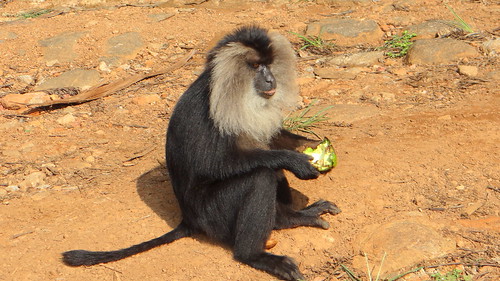 The lion-tailed macaque ranks among the rarest and most threatened primates. Their range has become increasingly isolated and fragmented by the spread of agriculture and tea, coffee, teak and cinchona, construction of water reservoirs for irrigation and power generation, and human settlements to support such activities. They did not, in the past live, feed or travel through plantations, but this behaviour has changed.
Destruction of their habitat and their avoidance of human proximity have led to the drastic decrease of their population.
Here's one swinging about on the wire:
The lion-tailed macaque ranks among the rarest and most threatened primates. Their range has become increasingly isolated and fragmented by the spread of agriculture and tea, coffee, teak and cinchona, construction of water reservoirs for irrigation and power generation, and human settlements to support such activities. They did not, in the past live, feed or travel through plantations, but this behaviour has changed.
Destruction of their habitat and their avoidance of human proximity have led to the drastic decrease of their population.
Here's one swinging about on the wire:
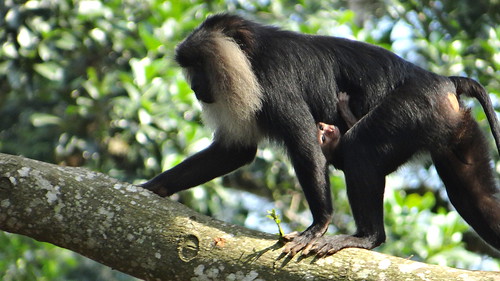
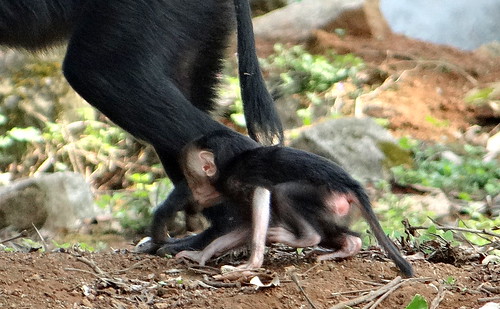
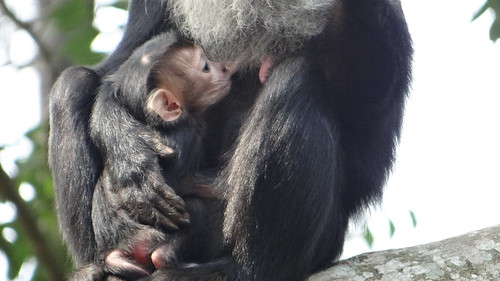
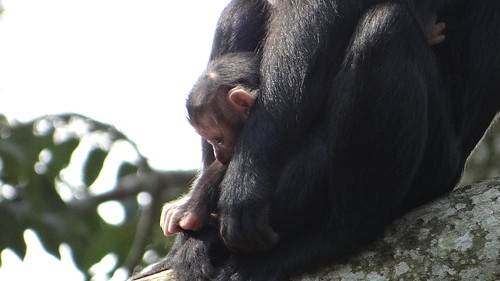 Gestation is approximately six months. The young are nursed for one year. Sexual maturity is reached at four years for females, and six years for males. The life expectancy in the wild is approximately 20 years
Here's a small, funny incident as a macaque jumps up as something bothers it, and starts running away:
Gestation is approximately six months. The young are nursed for one year. Sexual maturity is reached at four years for females, and six years for males. The life expectancy in the wild is approximately 20 years
Here's a small, funny incident as a macaque jumps up as something bothers it, and starts running away:
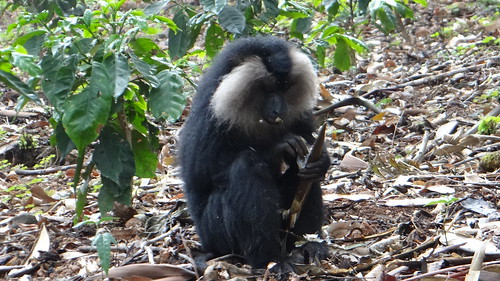
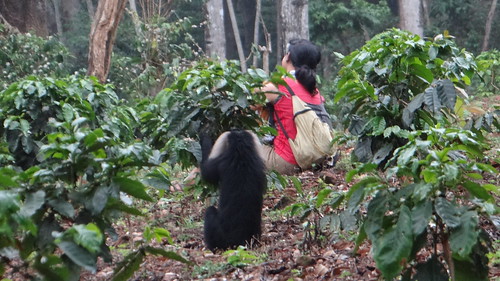
Here are a group, enjoying themselves (yes, that’s what I feel!) in the evening:

